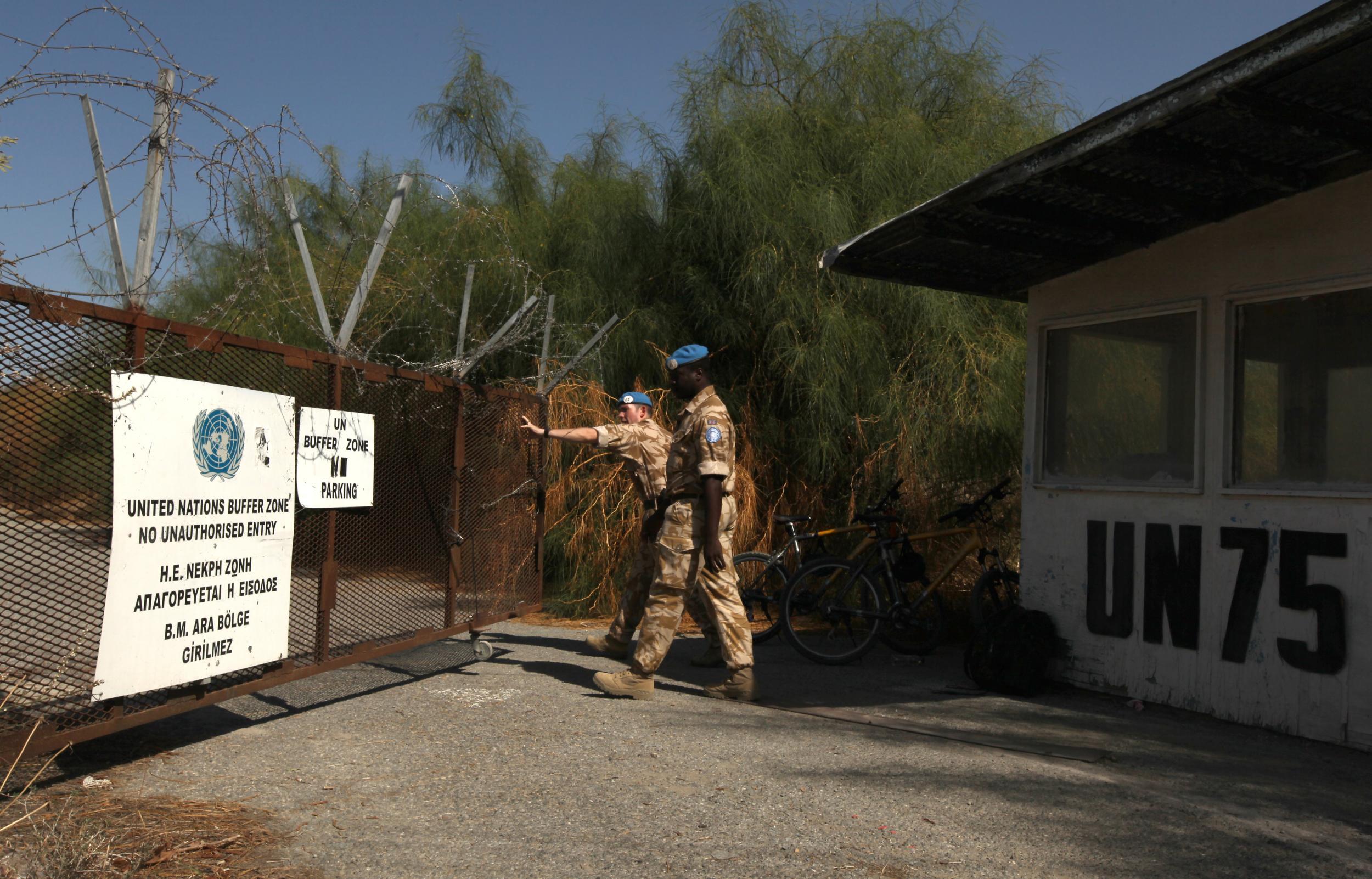How will Cyprus peace deal affect holidays to the divided island?
Green Line separating Turkish and Greek sides has impeded free movement since 1974

Your support helps us to tell the story
From reproductive rights to climate change to Big Tech, The Independent is on the ground when the story is developing. Whether it's investigating the financials of Elon Musk's pro-Trump PAC or producing our latest documentary, 'The A Word', which shines a light on the American women fighting for reproductive rights, we know how important it is to parse out the facts from the messaging.
At such a critical moment in US history, we need reporters on the ground. Your donation allows us to keep sending journalists to speak to both sides of the story.
The Independent is trusted by Americans across the entire political spectrum. And unlike many other quality news outlets, we choose not to lock Americans out of our reporting and analysis with paywalls. We believe quality journalism should be available to everyone, paid for by those who can afford it.
Your support makes all the difference.As the second day of talks to end the division of Cyprus begin, the signals from the United Nations in Geneva look positive. The Greek Cypriot leader, Nicos Anastasiades, and the leader of the Turkish Cypriot minority, Mustafa Akıncı, resumed negotiations on unification at the Palais des Nations.
A deal to end the division of the eastern Mediterranean island could transform the fortunes of the easternmost outpost of the EU.
Since Turkey invaded in 1974, in response to a Greek-inspired coup, Cyprus has been divided. About 800,000 people live in the internationally recognised Republic in the south, while 300,000 reside in the self-styled Turkish Republic of Northern Cyprus, recognised only by Turkey.
The “Green Line” that divides the island has become more porous in recent years, but still presents an impediment to free movement. Anyone who arrives on the island from Turkey is deemed to have entered Cyprus illegally by the government of the Republic. In addition, the Foreign Office warns: “Many cars hired in the south are not insured for use in the north.” Officials controlling the crossing points to the south enforce strict rules on goods, including a limit of 40 cigarettes per person.
Until partition, Cyprus — and, in particular, the capital Nicosia — was a thriving hub for the region. Nicosia airport closed after the invasion, leaving Larnaca and Paphos as the gateways to the Republic. Ercan airport in the north is served only by flights from Turkey.
Travel firms and prospective holidaymakers are watching the talks in Geneva with interest. The appeal of the island would be transformed by unification. Many tourists seeking alternatives to Tunisia, Egypt and Turkey could be attracted by easier access to resorts such as Famagusta and Kyrenia.
If a settlement is agreed, adventure companies are likely to move in, opening up the relatively unvisited interior of the north for hiking and cycling. In addition, the re-opening of Nicosia airport would boost the attraction of the capital as a city-break destination. It could also re-establish itself as a hub to rival Beirut, Tel Aviv or Cairo.
Yet many points of difference remain — in particular over the future of 30,000 Turkish troops on the island. The Greek foreign minister, Nikos Kotzias, tweeted: “We need a viable solution for Cyprus, without occupation forces and intervention rights.” But the government in Ankara maintains that the presence of Turkish troops provides a guarantee for peace.
Bilateral talks are expected to continue until Wednesday, followed by two days of negotiations involving Greece, Turkey and other players.
Join our commenting forum
Join thought-provoking conversations, follow other Independent readers and see their replies
Comments